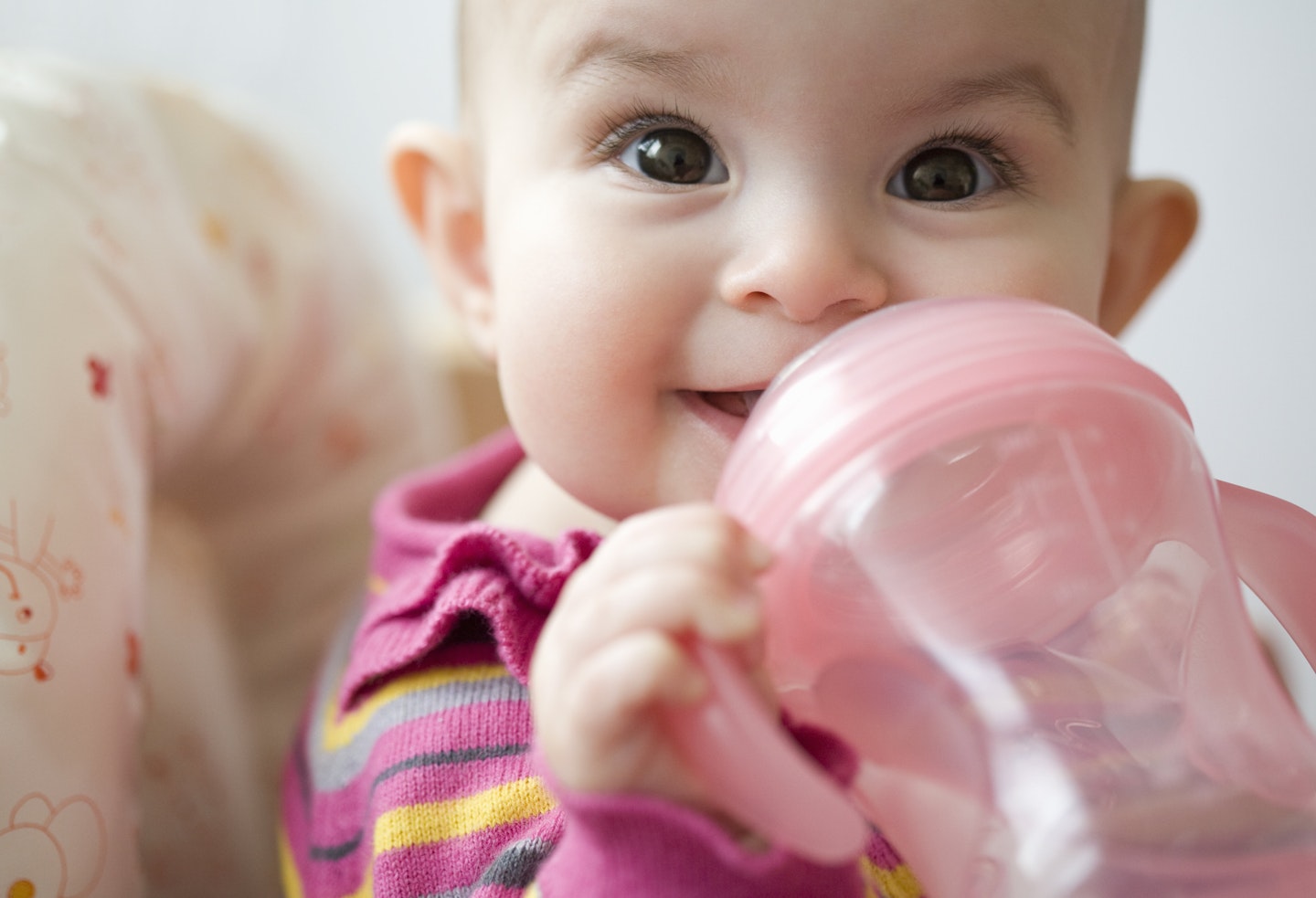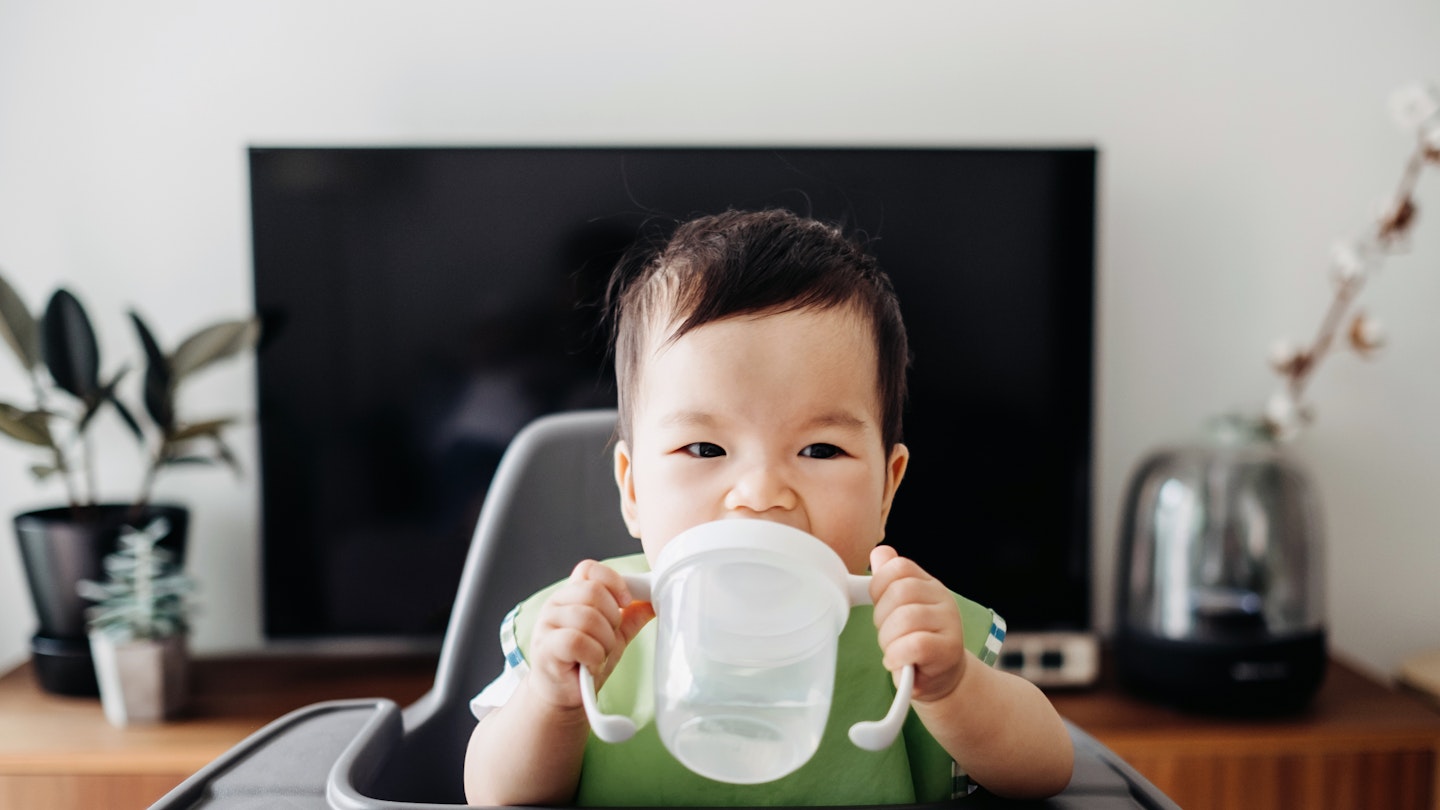We all know how important it is for our little ones to stay hydrated and healthy. Babies under 6 months old get all the hydration they need from breastmilk, but from the 6 month mark you can start to introduce small amounts of water as part of the weaning process. Read on to find out when you can give your baby water, how to introduce it and how much water they should be drinking.
When can I give my baby water?
From newborn to their first 6 months, your baby will get all their fluids from breastmilk, so you don't need to feed them water on top of this.
Once your little one is 6 months of age and they’ve started eating solid foods, you can introduce them to water. The water should help them digest their food easier to ease constipation.
According to the NHS, tap water for babies over 6 months doesn't need to be boiled and cooled before they drink it. When you do give it to them, only give them small amounts of water in a cup or bottle (no more than 4-6 ounces). Using an open cup or a free-flow cup is a great way to teach independent drinking. Bottled water isn’t recommended for babies as it may contain too much sodium.
It’s also still a good idea to keep feeding your baby breastmilk or formula alongside any water or solid foods to make sure they’re getting all the nutrients they need and this will benefit them for as long as you want to carry on. As your baby increases their intake of solid foods and water, the amount of milk they want will decrease and some babies may even drop their milk feeds and formula feeds altogether.
Why is water not suitable for babies under 6 months?
Before the 6-month mark, all your baby needs as their food and water is breastmilk or formula to keep them healthy and growing. Giving your baby water before this point could mean they don’t drink as much milk which could lead to insufficient weight gain and a milk deficiency for mum if they’re feeding less.
Another serious consequence of giving young babies water before they’re old enough is that it could cause a chemical imbalance as water can lead to water intoxication. This is a potentially dangerous condition where electrolytes in a baby’s bloodstream become diluted which can impact a baby’s normal body functions.
How much water should my baby drink?
After the 12 month mark most of your baby's nutrients will be coming from food. At this point water can be one of your child’s main drinks.
Between the ages of 1 and 4 years old – to avoid the risk of dehydration – children need to drink around 900 millilitres to 1 litre (6-7 cups) of fluid a day – that’s in addition to the fluid they get from foods like soup, fruit, vegetables and yoghurt.
Of course, if you decide to keep breastfeeding as well, that's fine. However, the breastmilk won’t be your child’s main source of nutrients any longer.
Author on infant nutrition Annabel Karmel adds, "As long as you have a cup on hand and offer water regularly, your baby should let you know when they want to drink.
"Don’t worry if your baby doesn’t drink too much at first, this is perfectly normal."

Why should my baby drink water?
When they reach 6 months, there are many benefits to giving your baby water.
• Keeps them hydrated - especially in the warm, summer months.
• Aids the transportation of nutrients and oxygen to cells
• Helps their digestion process
• Gets them used to drinking from a cup
• Keeps joints and tissue healthy
Water is also a much better liquid to give your baby than fruit juices, which the NHS say you shouldn’t give to a baby younger than 12 months.
In particularly hot weather, there is a risk of your tot becoming dehydrated, so they may need extra water to stay cool and hydrated. Be sure to give them regular sips of water throughout the day to avoid any dehydration and seek any medical advice from your GP if you’re concerned. You can find the signs of dehydration in babies here.
